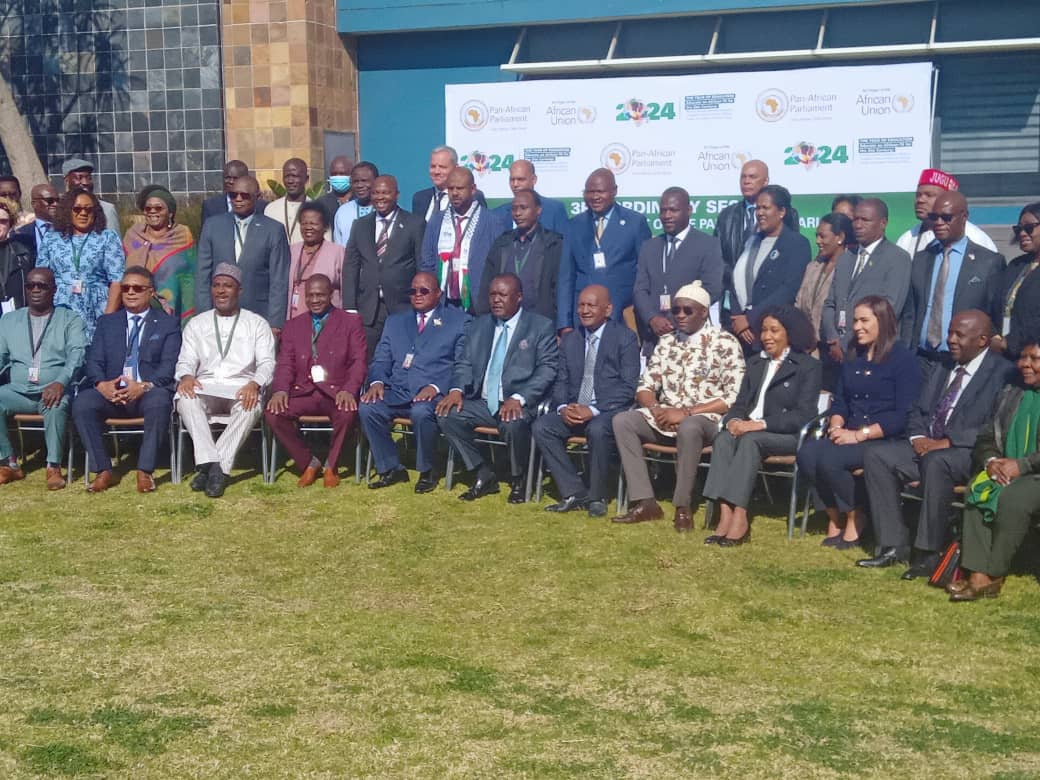|
Getting your Trinity Audio player ready...
|
The Pan African Parliament (PAP) has held a workshop on the African Union (AU) theme of the year 2024, “Educate an African Fit for the 21st Century: Building Resilient Education Systems for Increased Access to Inclusive, lifelong, quality, and relevant learning in Africa.”
In welcoming participants, Chief Fortune Zephania Charumbira, the President of the PAP, said the deliberations from the workshop will not only enable stakeholders to come up with strong recommendations that will contribute to strengthening and reaffirming support to the African Union in addressing the deficiencies in the education sector but also enhance visibility on the theme across the continent.
He acknowledged the efforts made by AU Member States to ensure access, completion, and quality of basic education for all.
The 2022 UNESCO Report on Education in Africa acknowledges that, overall, the proportion of out-of-school children had decreased until around 2010. It said the completion rates had improved in primary and lower secondary education, as well as the access to and participation in Technical and Vocational Education and Training (TVET).
There was also noticeable progress in access to pre-primary education, adult literacy, and lifelong learning. With regards to School Feeding, low-income countries, have doubled their national budget expenditures from 17 percent to 33 percent between 2013, and in lower-middle-income countries, national budgets now account for 88% of school meal financing, up from 55% in 2013.
“While these strides are commendable, it is sad to note that in this 21st century, Africa still faces the most significant challenges globally in the education sector. We should put our hands on the deck to address these shortcomings,” Chief Charumbira said.
Some of the gains that Africa had made were reversed by the onset of the COVID-19 pandemic.
Although the Out of school rate, e the “proportion of children and young people in the official age range for the given level of education who are not enrolled in pre-primary, primary, secondary or higher levels of education” keeps steadily decreasing, especially for the primary level, the absolute number has reached the alarming global estimate of 98 million in Africa.
The learning poverty rate, “the share of children who cannot read a simple text with comprehension by age 10 was the highest in sub-Saharan Africa before the COVID-19 pandemic, at 86%. Realistically, this rate is likely to have worsened after the pandemic, estimated now at 90%. This means that nine out of ten children cannot read a simple text with comprehension by age 10.
Africa will need 17 million additional teachers to achieve universal primary and secondary education by 2030. It is estimated that Africa will account for more than 90% of global external financing needs for education by 2030, with an additional US $40 billion needed to finance education to achieve SDGs for education and move towards meeting the aspirations of Africa’s agenda 2063.
“This situation is indeed unfortunate as the benefits that Africa can realize by investing in a robust and inclusive education sector, particularly one that aligns with market and societal needs cannot be overemphasized. Even in the context of competing crises – inflation, energy, food security, and climate – this is a crisis that is too severe to ignore. It is, therefore, critically important that Africa begins to address the structural and other barriers that continue to negatively impact our education systems,” Chief Charumbira said.
Education is considered a universal human right as well as an issue of public good and responsibility.
Chief Charumbira said the reality is that there are still many children on the continent who do not enjoy the right to education as there are inequalities that are evident in the existing educational systems based on region, gender, and economic status.
“This means that securing the necessary resources to reform our education system is non-negotiable. In this regard, African parliamentarians have a critical role to play in ensuring that adequate resources are allocated to this important sector nationally and continentally. We need to leverage on our control of the national purse to mobilize adequate resources to equip young people with quality education and in-demand skills, and to empower all children regardless of gender, status, level of education, or ability so that no one is left behind. Together we can spearhead an educational turnaround in Africa!”
As the quasi-legislative arm of the African Union, the Pan-African Parliament plays a very important role in ensuring that policies and treaties of the African Union are translated into national legislations and enforced by Member States in line with Article 3(1) of the PAP Protocol.
Consequently, the PAP discharges its mandate in the AU governance system by being the link between the people of Africa and the AU organs. It is worth noting that the PAP in exercising this mandate undertakes annual activities aimed at promoting the theme for the year. These activities are aimed at promoting awareness of the particular theme of the AU priorities and policy directions for the year.
Expert presenters drawn from various organizations and institutions from across the continent focused on two key thematic areas namely: Innovative strategies for building inclusive, resilient, and sustainable education systems through technology, policy, and data analysis; and Advancing equitable and inclusive education for sustainable development in Africa
This workshop reflected on the current educational crisis in Africa and evaluated the progress made towards SDG 4. The workshop also presented an opportunity to address the continent’s education crisis and galvanize collective commitment and action to address the challenges and deficiencies in the sector.






